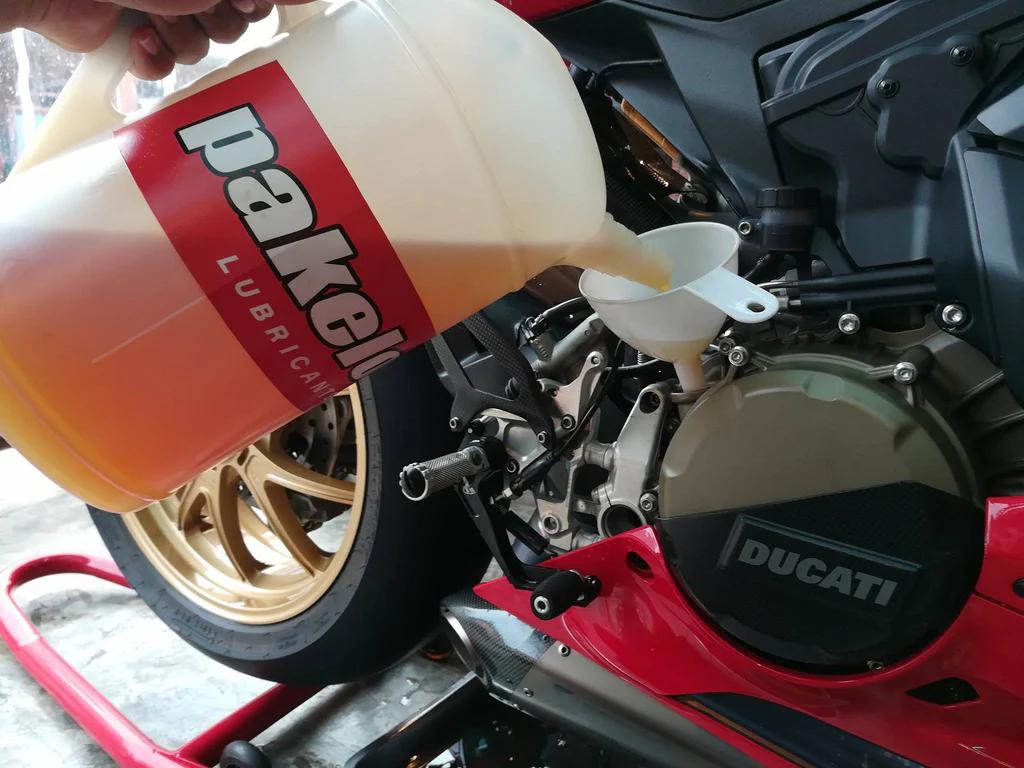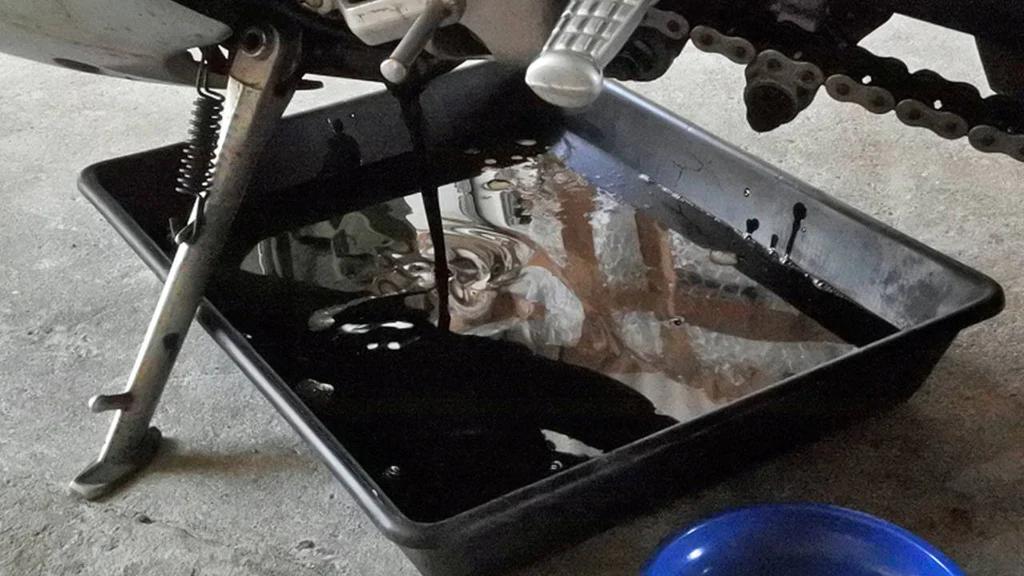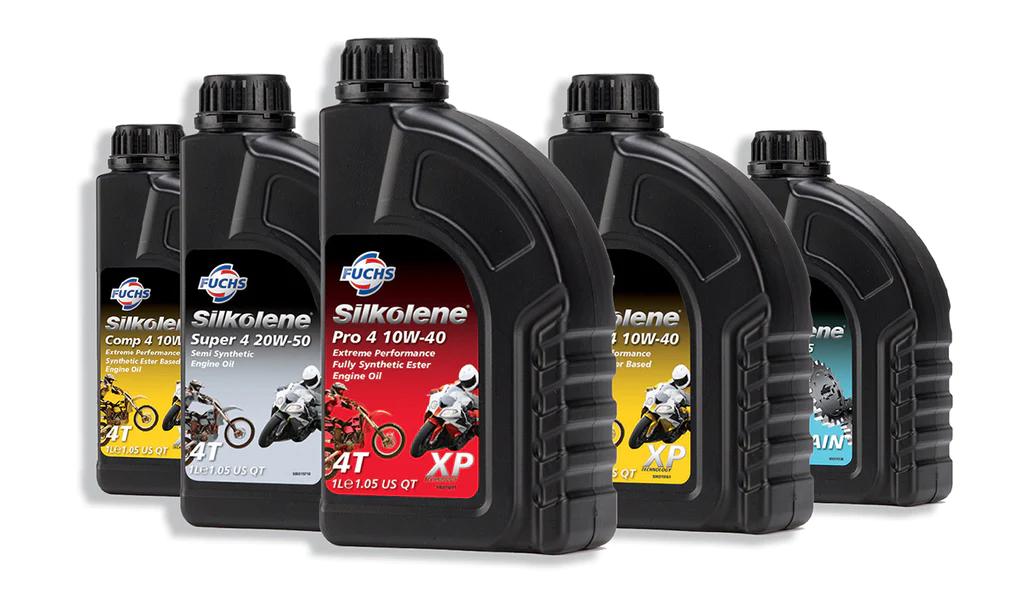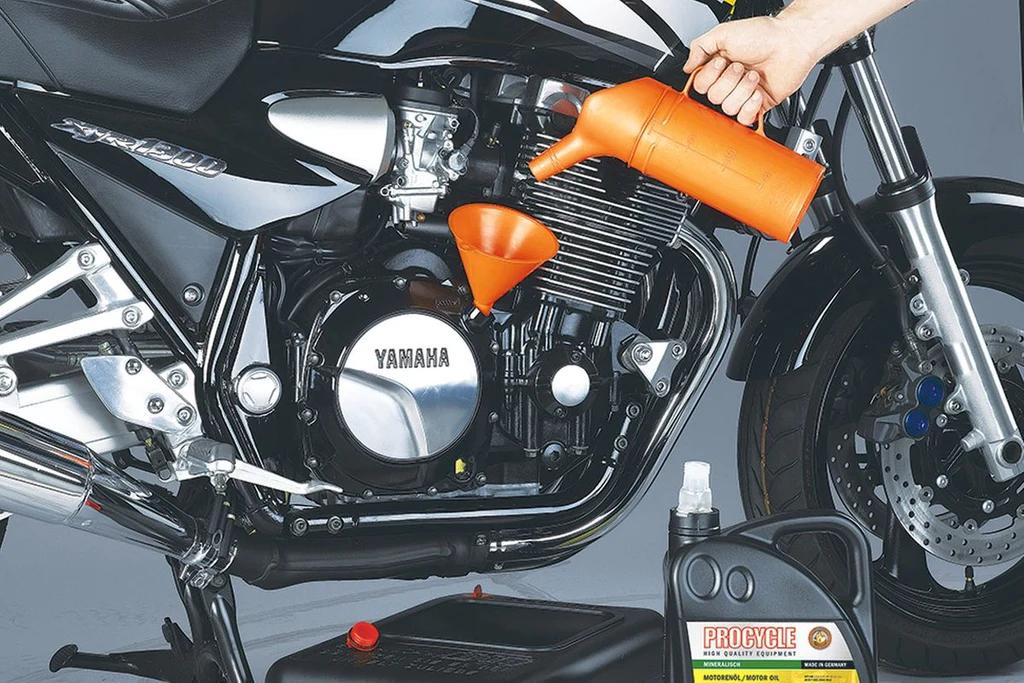The function of engine oil is to lubricate, clean and cool engine parts. Motor oil needs to be changed regularly, but when exactly? By time or miles? In fact, there are many different opinions in the market. Helmet King will thoroughly explain the characteristics, selection, replacement time and so on of engine oil for everyone.

When to Change Oil
The most accurate time to change the oil is to check the recommended replacement mileage in the original owner's manual and use this figure as a reference. Generally speaking, because sports cars usually use high-speed engines, the quality of the oil is naturally higher, so the oil needs to be changed more often. If you want to be conservative, or don't want to check the oil dipstick, you can use 30% to 20% of the original factory's recommended mileage as a standard, and replace it every time the oil usage mileage reaches this number. The recommended replacement mileage of the original factory can be said to be the minimum standard for maintenance, but even if the oil of the motorcycle has not been used to the recommended mileage of the original manufacturer, the oil should be replaced at least once a year.
However, under different car habits, the usable mileage of engine oil will actually be somewhat different. If you often drive vigorously, accelerate violently, or often encounter traffic jams, the engine will run at high temperature more often, and the timing of oil replacement should be further advanced.

The fate of not changing the oil
If the engine oil has been used for too long without regular replacement, the oil will deteriorate and deteriorate, and the performance of the deteriorated engine oil will deteriorate. If the engine is not properly lubricated, cleaned and cooled, carbon deposits will occur in the engine, and parts will wear out. It will be aggravated, and the metal particles produced during the operation of the engine cannot be taken away, which will cause damage to the cylinder wall. In the worst case, it will cause the engine to shrink or even explode. Therefore, changing the engine oil normally is a very important action for engine maintenance, and it must not be ignored!
How to distinguish the degree of oil
First of all, the degree of engine oil is composed of two parts. The W in the degree actually means Winter (winter), and the number before W represents the viscosity of the tank of engine oil at low temperature. The smaller the number, the better the flow at low temperature. Sex is better. The fluidity at low temperature determines whether the engine oil can flow to every part in the engine that needs to be lubricated when the car is started in cold, and also determines whether the engine is easy to start when the car is cold and warms up smoothly.
As for the number after W in the degree, it represents the fluidity of the oil at high temperature. The number after W is tested in an environment of 100 degrees Celsius. The larger the number, the higher the viscosity of the oil at 100 degrees Celsius. At high temperature, it can produce a stronger oil film to lubricate engine parts, which is more suitable for use at high temperature. by

The relationship between the degree of oil and the weather
The relationship between engine oil and weather is actually very simple. 5W40 engine oil is more suitable for use in low-temperature environments than 10W40. In Europe and the United States where the climate is colder, even 0W engine oil is used to ensure that the engine can start smoothly. As far as Hong Kong's climate is concerned, 5W and 10W engine oil are quite sufficient.
As far as the general street market in Hong Kong is concerned, the number after W is quite sufficient at 40, so the most common engine oil degree in Hong Kong is mostly around 5W40 to 10W50.

How to choose engine oil
To choose the right engine oil for your motorcycle, you have to decide from the environment and habits of the car. If you use the car mainly for short distances, the engine does not have time to rise to the operating temperature, or it happens to be winter when you change the oil, you can consider Use 5W30, 5W40 and other engine oils.
As for the high-temperature viscosity part, if your car needs mostly continuous use for a long time (such as: takeaway or other work purposes), or if you often drive vigorously, or change the oil in summer, you can Consider using 10W50, 5W50, and other oils with better high-temperature viscosity.





